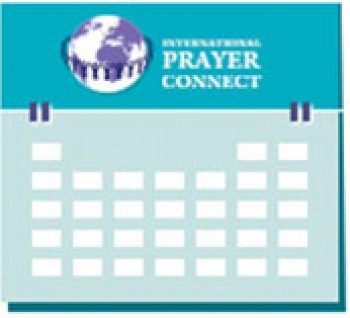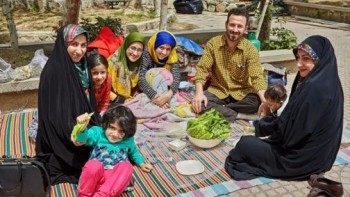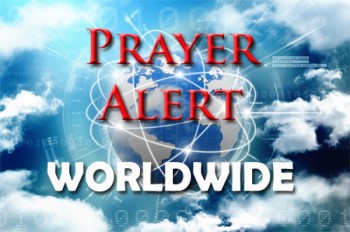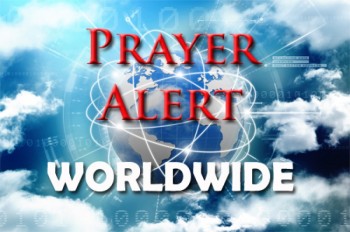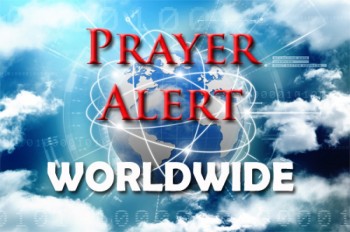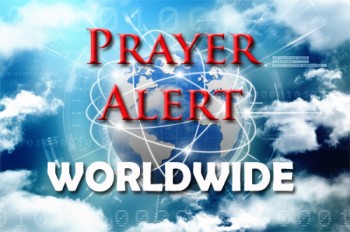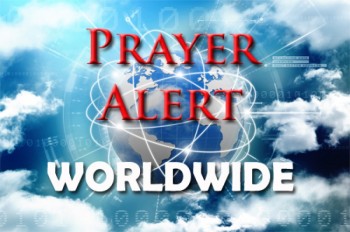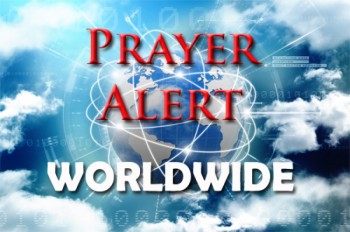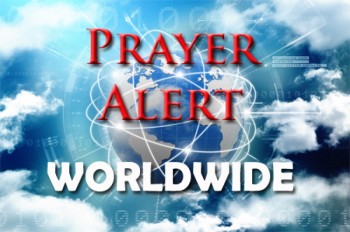
Super User
Lorem ipsum dolor sit amet, consectetur adipisicing elit, sed do eiusmod tempor incididunt ut labore et dolore magna aliqua. Ut enim ad minim veniam, quis nostrud exercitation ullamco laboris nisi ut aliquip ex ea commodo consequat. Duis aute irure dolor in reprehenderit in voluptate velit esse cillum dolore eu fugiat nulla pariatur
The Lord is gathering His people on the European Continent, and the whole body of Christ from other parts of the world stands with this European Gathering, for we know that the Lord will uncover the old wells on this continent and new streams of grace will again flow from Europe to the world.
In the last years Rise-Up Now has run several conferences in different European cities with the vision to see national European believers and immigrant believers from different parts of the world living in Europe work together to proclaim God's ownership of each European land they live in through prayer, networking, and proclaiming the good news to all.
His bride from every tribe, people, and nation exclaims to HIM, "You are worthy." This bride from many nations will come together in Brussels from June 11th to 13th to worship Him and proclaim His dominion over Europe.
Video invitations:
Dr. Khaled Leon
https://youtu.be/rAy302eg-js
Fadi Krikor
https://youtu.be/WPPR0AGpmpE
Pastor Yassir Eric
https://youtu.be/I1m_MRjwvtg
The Lord gathers his people from Europe and the whole body of Christ from other parts of the world to become one with the European assembly because we know that the Lord will open the old wells on this continent Europe and new streams of grace from Europe again will flow all over the world.
In recent years, Rise-Up Now has held several conferences in different European cities with the vision of seeing European siblings working together with foreign siblings who come from different parts of the world and now live in Europe To proclaim God's rule over every European country they live in through prayer and cooperation in spreading the gospel.
His bride from every tribe, people and nation calls to him: "You are worthy." This bride from many nations will meet in Brussels from June 11th to 13th to worship him and proclaim his rule over Europe.
To Register Click Here:
2020 a year of evangelism across the UK
https://advance2020.org/
Global Jesus Fast - Beholding the Lamb - March 1 - April 9th
https://www.louengle.com/thejesusfast/
Seek God for the City Feb 26–Apr 5, 2020
https://waymakers.org/pray/seek-god/
The World Prayer Centre, Birmingham, UK, National Conference 9-11 March
Watchmen Gathering - Seoul, South Korea, 25th-28th March
North East Asia Prayer Summit, Seoul, South Korea, POSTPONED
Go 2020 – Reaching 1 Billion for Christ - May 2020
www.go2020.world | www.ihopkc.org/prayerroom/
4th Caribbean Prayer Summit, Montego Bay, 21st-24th May,
EMAIL: This email address is being protected from spambots. You need JavaScript enabled to view it.
10 days Spring - May 21- 31
One God - One Day - One Africa – 31st May 2020
The Graham tour 2020. 9 cities celebrating Billy Graham crusades across the UK
www.billygraham.org.uk/p/coming-in-2020-graham-tour-uk/
Rise Up Now – Europe – Brussels – 11-13 June
http://www.riseup-now.com/events/riseup-now-2020/
17th SEA PRAYER Council in Hanoi, Vietnam - 6-9 October
National Prayer Assembly (USA), Washington, D.C., October 14-15
www.nationalprayerassembly.com
Movement for African National Initiatives – Abidjan, Ivory Coast, 8-12 March 2021
https://maniafrica.com/category/prayers/
UPRising Events Calendar

FB: Uprising Europe
IG: @uprisingeurope
UPRISING AUSTRALIA (Sydney, Australia) -- July 14-18, 2020
FB: UPRising Australia
IG: @uprising.australia
UPRISING Chile – November 2020 (Date TBA)
UPRISING NEW ENGLAND (New England, USA)-- Nov 19-21, 2020
FB: United Prayer Rising - New England
GLOBAL UPRISING Manila, Philippines, Nov 2021
www.unitedprayerrising.com
- UPRISING MINDANAO (Mindanao, Philippines)-- dates TBA
- UPRISING BUKIDNON (Northern Mindanao)
- UPRISING CARAGA (Butuan, Bislig, and Surigao)
- UPRISING DIGOS (Davao Del Sur)
- UPRISING CENTRAL MINDANAO (South Cotabato, Cotabato, Sultan Kudarat, Sarangani, and General Santos)
FB: United Prayer Rising Mindanao
FB: United Prayer Rising North Mindanao
IG: @uprisingmindanao
A Call to Prayer and Fasting between March 20 and April 3, 2020
God is on the move in extraordinary ways among Persians around the world with multitudes coming to faith, but there are still millions unreached with the gospel.
There are approximately 110 million Persian speakers worldwide, including Persians, Tajiks, Hazaras, Tats, and Aimaqs. Each year an estimated 300 million people throughout Central Asia and surrounding countries celebrate NOWRUZ, Persian New Year; for 10 days, they celebrate 3000-year-old traditions that far predate Islam.
Followers of Jesus around the world can take this opportunity to share about Jesus who is “doing a new thing . . making a way in the wilderness and streams in the desert (Isa 43:18-19) all things new.”
In a recent meeting, many movement leaders sensed this is a key moment in the history of this nation and its peoples, so the 24:14 Community calls our whole family to 10 days of united prayer and fasting at this 'kairos' time.
Download the Prayer Guide Here:
http://ipcprayer.org/images/Persian%20New%20Year%20Prayer%20Guide%202020.pdf
Each day there are 3 prayer prompts, we suggest that you take time to pray when you would normally be having a meal, or set your alarm 3 times during the day.
Liz Adleta
www.2414now.net
On Monday 2 March, Israelis will, for the third time in a year, cast votes for a government. Proverbs 16:9 says ‘In their hearts humans plan their course, but the Lord establishes their steps’. Lord we ask you to encourage the hearts of the electorate to vote in line with your will. Since two elections with no final results did not take you by surprise, we ask for your purposes to be fulfilled in a clear undisputed election result. Also, Hamas has threatened to restart the weekly riots soon. Israel is supposed to have a cease-fire with Hamas but still rockets are fired and incendiary devices are flown against the Israelis living in that Western Negev area. Father, during this ‘lull,’ do not allow the IDF to become complacent. Protect the young ones from the fire balloons coming across the border which are specifically aimed at killing or maiming Jewish children.
Quotes from a working document on Islam from the Lausanne Global Consultation state - Every individual church fellowship and denomination throughout the world needs to find ways of enabling Christians to be awake to the challenges of Islam and for opportunities to witness to Muslims. Where Christians are held back by fear, they need to be encouraged to build genuine, natural relationships with their Muslim neighbours, by practising hospitality and taking bold initiatives. Where they are held back by ignorance, they need to learn more about Muslims and Islam and to explore prayerfully some of the new opportunities that have opened up in recent years for communicating the gospel. Where they are held back by prejudice, they need to be reminded of the ways in which Jesus enabled his disciples to overcome their racial and religious prejudices.
Rohingya pastor, Taher, and his 14-year-old daughter were abducted from Bangladesh Cox’s Bazar a refugee camp after 59 men attacked 22 Christian families, beating residents, vandalising homes, and looting property. At least 12 Christian refugees were injured and hospitalised and a makeshift Christian church and school were smashed. Families were relocated to a UN transit centre and filed a police case against the armed ethnic group, Arakan Rohingya Salvation Army. Taher’s wife, Roshida, fears her husband is dead and that her daughter has been forced to convert to Islam. She said, ‘No one can give me clear information.’ Approximately 1,500 Rohingya Christians are among 700,000 predominantly Muslim Rohingya refugees who fled ‘ethnic cleansing’ in 2017. Authorities described the attack as a ‘law and order incident’ - not Christian persecution. They do little to protect Christians. One said, ‘if victims wanted safety they should ‘go to the moon.’
Unrelenting violence consumes northeast Delhi as roving mobs with iron rods, sledgehammers and guns rampaged through the streets, committing arson, vandalism and terrifying residents since 22 February. On 27 February police said that WhatsApp was used by the gangs who indiscriminately injured children and the elderly. They vandalised and burnt schools, homes, cars and businesses leaving 35+ dead and 200+ injured because a new citizenship law allows 'persecuted minorities’ (Muslims Christians, Parsees, Sikhs, Buddhist etc.) citizenship status after six years of residency. From the start Hindus were considered ‘natural citizens’ of India and reject the new law. Police seized 50 mobile phones used by rioters to organise themselves by directing hired thugs from Uttar Pradesh and whipping up frenzied violence. Delhi Police and the Home Ministry said that the situation is under control, but the violence has not abated and the death toll has climbed steadily since the first day.
Please call on the Lord for his intervention in the swarms of locusts that are growing and devouring farms in Africa, now spreading to the Middle East and China. (See). Pray for the hundreds of thousands forced to evacuate their homes after unusual flooding has devastated Australia, Southern USA, Bolivia, Peru, Indonesia and parts of the UK. (See) Over the past two months seismic activity has been rising. Last week a 7.7 quake struck off the coast of Jamaica shaking people as far away as Miami and Mount Merapi in Indonesia erupted launching lava and ash 2,000 metres into the sky, forcing residents to flee to a 1.8 mile designated no-go zone. (See) Pray for peace of mind for those living near seismic activity. Coronavirus infections continue to rise but less media coverage has been given to the highly contagious H1N1 virus that claimed 13 lives in one week in Taiwan (See)
After months of unrelenting demonstrations led to the fall of President Omar al-Bashir last year, Sudan entered a three-year transition towards democracy with a new cabinet in September. Hope accompanies this situation as people look for a fresh approach that will respond to their needs. Many believe only time will show whether this hope will stand. Pray that the preliminary peace deal with the rebel Sudan People’s Liberation Movement will stand and end 9 years of fighting in the Blue Nile and South Kordofan areas. Meanwhile, efforts to conclude a peace agreement with rebels in Darfur and Eastern Sudan are also under way. Important progress was made this month when Sudan announced that it was willing in principle to hand over ousted President Omar al-Bashir to the International Criminal Court over alleged war crimes and genocide in these areas.
The government wanted to install facial recognition cameras in Pastor Xiang En’s church sanctuary. When he refused they did it anyway and gathered the private data of church members so that they could target them. They will intimidate them with their jobs, their housing, and their children’s education to prevent them from going to church. Pastor Xiang said, ‘Hundreds of policemen raided our church, smashed our building, put the pastors on surveillance, and shut down the church.’ After his church was shut down the first sermon he preached was from Revelation 3:7-8: ‘I have placed before you an open door that no one can shut. I know that you have little strength, yet you have kept my word and have not denied my name.’ Pastor Xiang remains hopeful, despite the opposition his congregation faces. Many prominent mainstream churches and house churches in China continue to be shut down.

